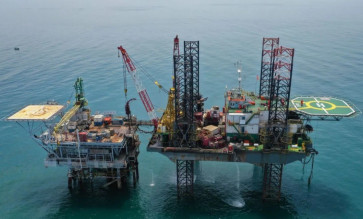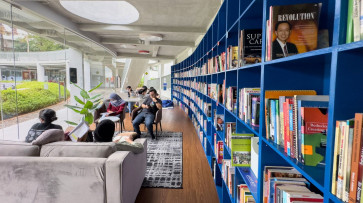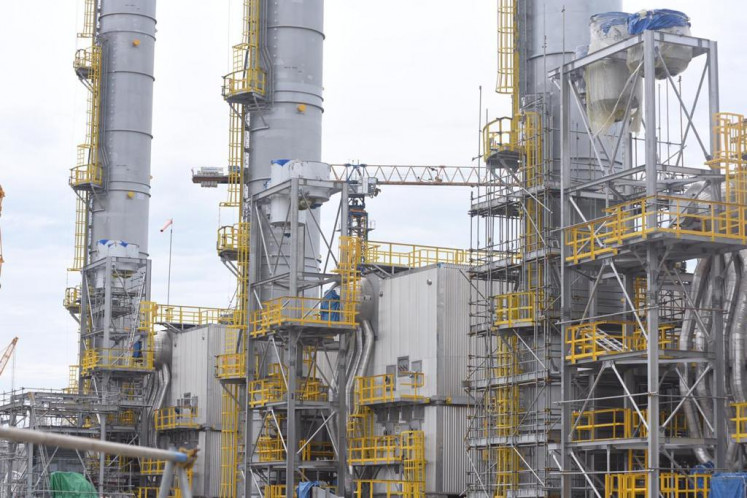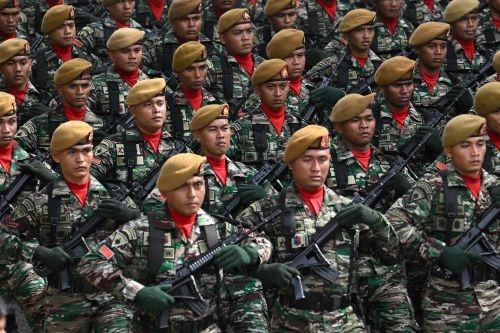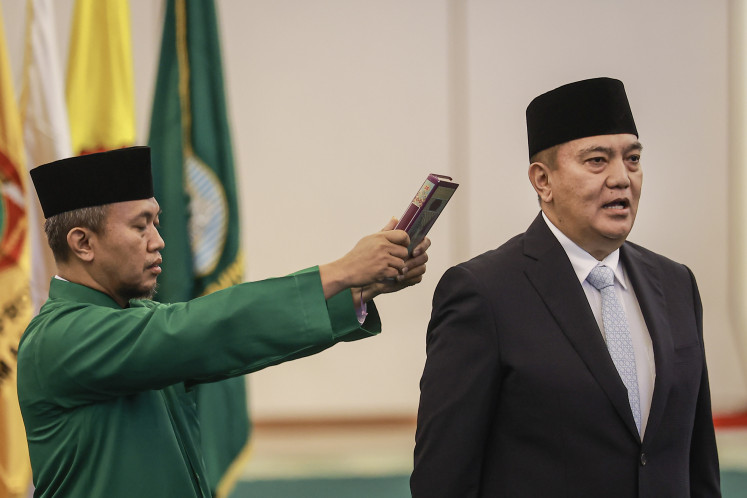Palu, a piece of paradise on the equator
"Palu is a piece of paradise on the equator" is a fitting description of this city, which has the most complete and unique layout
Change text size
Gift Premium Articles
to Anyone

"Palu is a piece of paradise on the equator" is a fitting description of this city, which has the most complete and unique layout.
It is a piece of paradise on the equator because it has a stunning valley, a scenic bay, mountains stretching to the right and left of the city and a river that divides West and East Palu.
"This city has everything. Visitors are really amazed by the scenic panorama of the city," said Andi Mulhanan Tombolotutu, deputy mayor of Palu, in praising the topography of his city.
Some areas in Indonesia have a valley but not a mountain, or they have the sea and a mountain, but not a valley and a river that divides the city. So Palu is quite unique.
The beauty of the city becomes more apparent when viewing the sunset on Palu Beach, which is located in the heart of the city. Another sight is the arched Palu Bay Bridge, which has a sister bridge in Japan and another in France, making it one of only three such bridges in the world.
The Rp 57 billion bridge was inaugurated by President Susilo Bambang Yudhoyono on May 2, 2007 during an official visit to the area.
Palu Cultural and Tourism Agency chief Sudaryano Lamangkona said the city has a special atmosphere as it is so cool.
Palu's offerings recently prompted the local city administration to name the city the "Revival Center of the Malay Race" and the northern gateway to Indonesia.
"This city will become the gateway to eastern Indonesian culture in relation to its brothers from China," said Mulhanan Tombolotutu.
One of the city administration's efforts to boost tourism is to take care of related matters. Talise Beach in Palu City, Central Sulawesi, had a negative image during the 1990s and was notorious as a place for prostitution. Once the sun set, the dimly lit food stalls strengthen the negative perception.
So it was not surprising that the area was crowded with people arriving by motorcycle and car. They went there not only to enjoy traditional drinks like sarabba (ginger and coconut drink) and snacks, such as fried bananas, gepe (grilled banana with cheese and brown sugar) and fried corn, but also to be entertained by prostitutes.
The Palu City administration decided to put an end to the practice. Moreover, Talise Beach is located in the center of the city so visitors had a bad impression. The administration issued a regulation to forbid sex workers from plying their trade there.
Numerous raids were conducted, with those caught being sent to Kalukubula Rehabilitation Center to learn a new trade. Finally, Talise Beach was rid of dimly lit food stalls and only those actually selling traditional Kaili snacks and drinks remained. Kaili is an original tribe of Palu. These days at Talise Beach one can enjoy the panoramic view of Palu Bay, which is on Makassar Strait. The lights of fishing boats bob up and down with the motion of the waves. The beauty of the scene has become more complete with the presence of Palu IV Bridge.
Not far from Talise Beach, about 3 kilometers to the west, is Taman Ria Beach (Fun Beach). Here one can dine on kaledo (beef soup), which is eaten with cassava or rice, uvempoi (sour beef soup), which is eaten with burasa (rice cooked in coconut milk and wrapped in banana leaf), and uta dada (local chicken curry).
There is also a restaurant with a complete Indonesian menu, the favorite dish being grilled fish. Here one can savor many kinds of fish, such as bubara (jack fish), kakap merah (red snapper), baronang (rabbit fish), sunu (coral trout) and other export quality fish.
Palu is indeed a beautiful city. It is also called "A Three Dimensional City", because it has a bay that is surrounded by mountains and there is a river cutting through the heart of the city. Along the river is Lindu Lake, which is located in Lore Lindu National Park.
"While all this makes Palu beautiful, we do not have sufficient funds to develop it into a modern tourist destination," said Palu Mayor Mulhanan Tombolotutu. However, he said the administration would develop the city's beaches into beautiful nightspots.
"I am sure the beaches will become an ideal place to relax with one's family," he said.
When the sun rises, the romantic night scene changes to crowds of people relaxing on the beach and enjoying a dip in the warm water. Those who enjoy diving or snorkeling can marvel at the colorful coral in the shape of flowers and trees.
"Even when snorkeling just 3 meters from the shore, one can see beautiful fish darting around the coral at Talise Beach," said Ferry Taula, a restaurant owner.
He takes photographs of the colorful coral and guards the beach so that no one uses illegal means to catch fish. Ferry hires local residents to apprehend any fishermen bomb fishing or using poison.
He also empowers traditional fishermen by providing them with fishing boats and purchasing their catch. "I do this so that they do not catch fish illegally," he said. Ferry said on Sundays about 100 people bathe at the beach.
The largest hotel in Palu is located just 1 kilometer from Talise Beach. The airport is just 4 kilometers away and a golf course a mere 500 meters.
Unfortunately, only local tourists come to this place. Foreign tourists are more familiar with Tanjung Karang Beach in Donggala regency, about 45 kilometers to the west of Palu, and Togean islands in Tojo Una-Una regency.
These two places are aggressively promoted and have cottages as well as other related facilities. Most of the tourists are Europeans. Central Sulawesi Tourism Board data reveal that 150 tourists visit Tanjung Karang Beach each year while the figure for Togean Islands is 300. Talise Beach could be developed like Tanjung Karang Beach and Togean islands if the Palu City administration prioritized tourism development. Currently the administration is focusing on the economy and infrastructure.
Tourism development must also be in line with the creation of Palu as a safe city and not as a haven for terrorists, as reported recently.
"Palu is a safe city. The media has blown it up and reported as if the city is full of terrorists," said Andi Mulhanan Tombolotutu.


